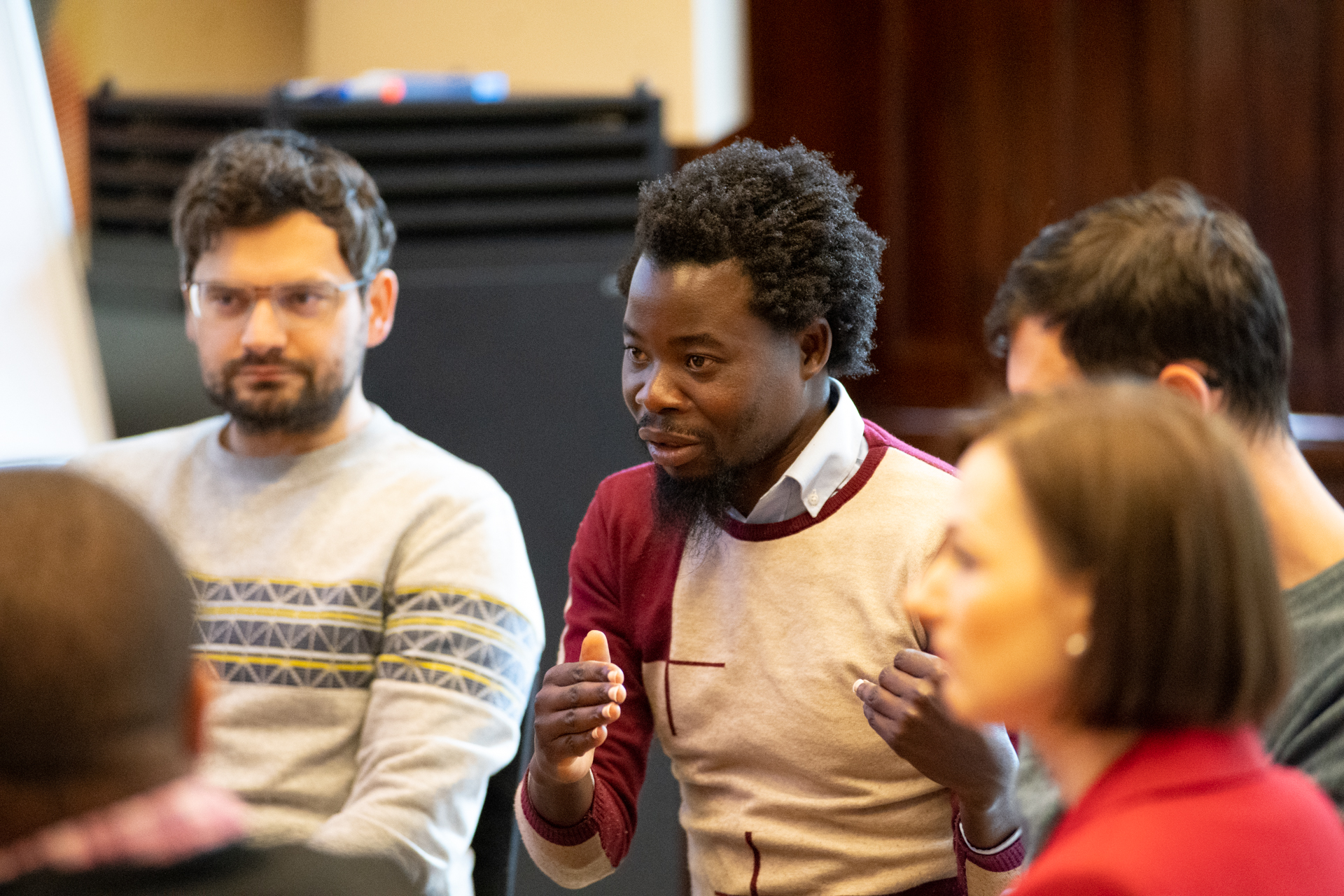The end-of-life brings a lot of mixed experiences, both psychological and physical. While the outcome cannot be changed at times, the journey along the way can be impacted. That is where palliative care comes in, to improve the quality of life and help reduce pain in people who have a serious or life-threatening disease. The goal is to prevent or treat, as early as possible, the symptoms of the disease and the side effects caused by treatment of the disease so that individuals can live as comfortably as possible, for as long as possible.
The Open Society Foundation Public Health Program was pleased to host a Taste of Palliative Medicine seminar based on the Palliative Care Interdisciplinary Curriculum (PCIC). 32 fellows from 19 countries, including doctors interested in learning about palliative care as well as small groups of colleagues concerned about developing multidisciplinary palliative care teams in their institutions, attended the course in Salzburg from April 16 to 22, 2023.
With the evolution of modern medicine in each of our countries, attention to the experience of the patient and family becomes ever more important. The early introduction of palliative care practices concurrent with strategies to manage any disease process can both improve the experience of our patients and prolong their lives. It can also help every healthcare professional achieve greater satisfaction with less conflict. This week’s course equipped participants with the following information via breakout sessions that focused on palliative care points such as:
- An overview of value of early palliative care.
- Strategies to assess and manage core symptoms, including bone, abdominal and neuropathic pain, nausea and vomiting, constipation and bowel obstruction, dyspnea, delirium, anorexia, and cachexia.
- Approaches to effective communication and decision-making, including how to communicate good and bad news effectively, communicate prognosis, facilitate difficult decision-making, including withholding or withdrawing fluids, nutrition, and antibiotics.
- Care in the last hours of life, including preparing for the end of life and managing the dying process.
- Personal reflection about your experience, such as caring for patients and families living with advanced illnesses and the impact of loss, compassion fatigue, burnout, and how to stay resilient.
The faculty comprised of a wide range of experts from the USA and Europe. Dr. Frank D. Ferris, Associate Program Director of Hospice and Palliative Medicine Education at OhioHealth, Professor of Palliative and Specialty Medicine at Ohio University, and Principal of the Palliative Care Interdisciplinary Curriculum in Columbus, Ohio, served as the course director. Additional faculty included Dr. Snezana M. Bosnjak from Serbia, Dr. Pamelyn Close from the USA, Dr. Ágnes Csikós from Hungary, Dr. Joe El Khoury from Lebanon, Dr. Shannon Y. Moore from the USA, and Dr. Kyriakos Stylianides from Cyprus.
In preparation for the course, participants were asked to watch several video presentations online. The content helped prepare participants for interactive, small group, case-based discussions. Several sessions included role plays as well, which reinforced conversational skills and approaches. Throughout the week, fellows were encouraged to engage in personal reflection about their experience with patients and families and the care they provide. On Friday afternoon, each participant presented a personal reflection project that incorporated something from the arts and humanities.
After the presentation of reflection projects, which were sentimental and meaningful for all fellows and faculty involved, the group concluded the seminar with a three-course dinner and the graduation ceremony. Each fellow received their certificates of participation and had the chance to relax and celebrate all they had accomplished over the week. The knowledge and skills learned this week will surely be life changing for many!
At some point, each of us and those we love will face the challenge of living with advancing illnesses that we hope will be optimally managed by newly emerging specialty skills. This week, fellows learned how the new medical specialty of palliative care can help their patients live longer and have the best possible experience throughout their illness through effective communication and careful management of the many issues that cause patients and families suffering.















